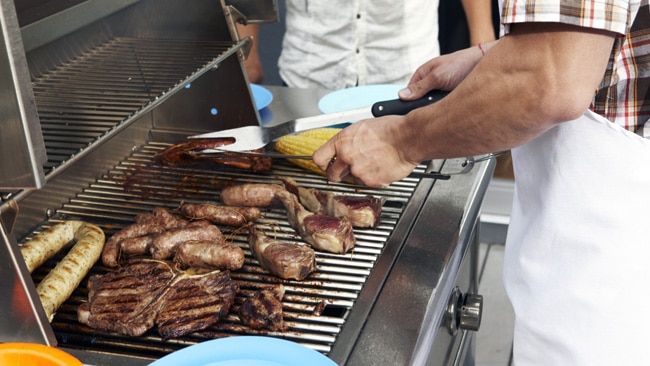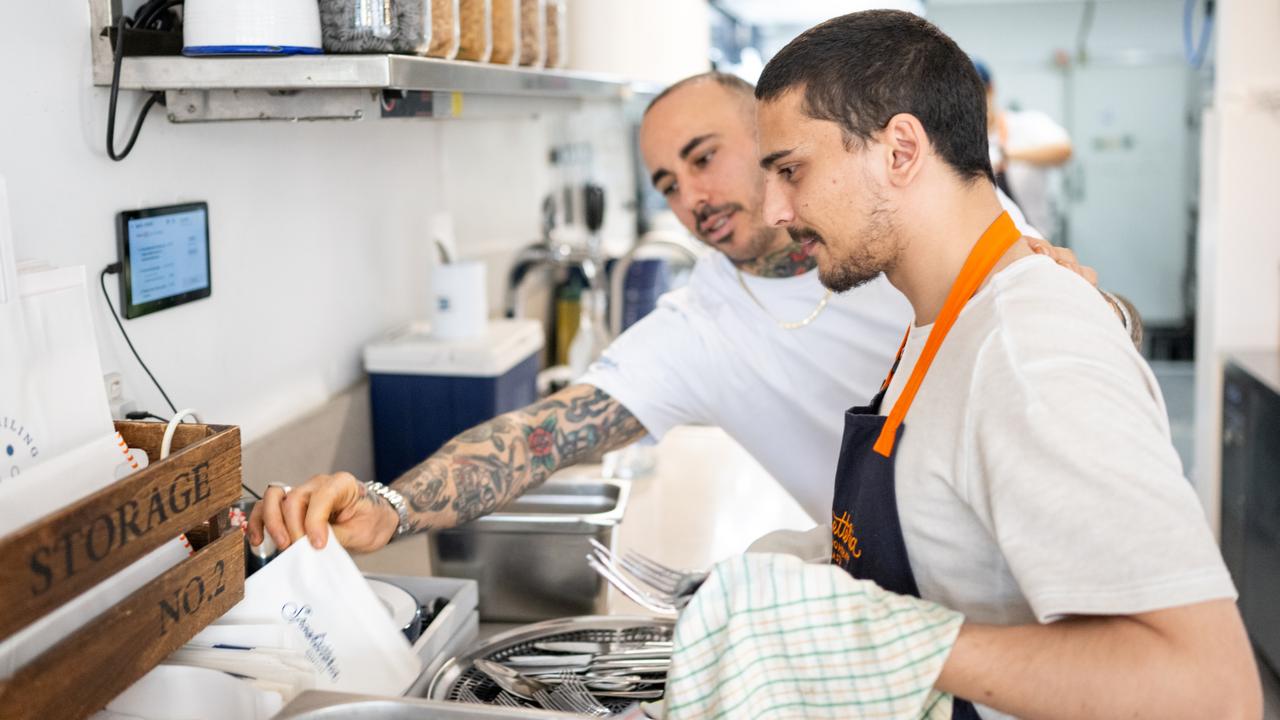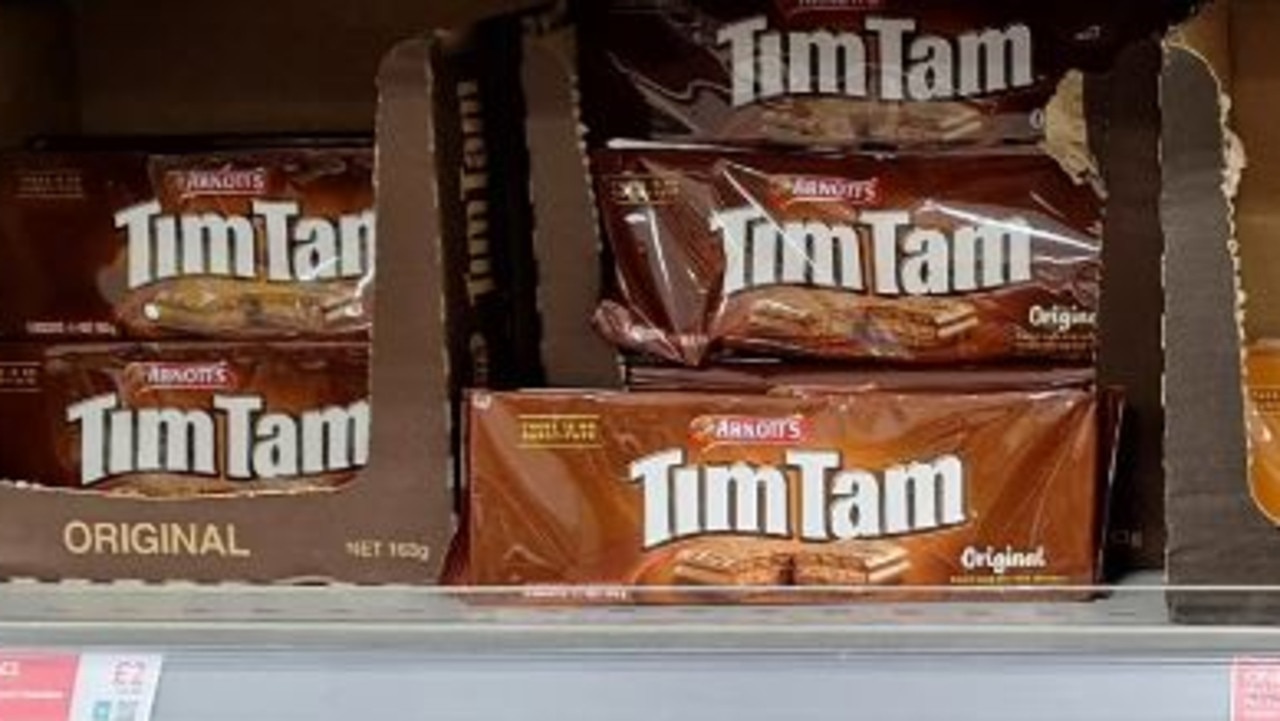How to avoid food poisoning this summer
FOOD poisoning results in 120 deaths, 1.2 million visits to doctors, 300,000 prescriptions for antibiotics, and 2.1 million days of lost work each year.

FOOD poisoning results in 120 deaths, 1.2 million visits to doctors, 300,000 prescriptions for antibiotics, and 2.1 million days of lost work each year.
And as the weather gets warmer, the likelihood of you getting food poisoning rises too.
On Monday news.com.au ran a story based on the results from a survey conducted by the Australian Food Safety Information Council, which found that six in 10 Aussies are guilty of washing raw chicken, which puts you at a higher risk of getting food poisoning and spreads bacteria around the kitchen.
You asked for more advice, so we've come up with this guide on how to avoid food poisoning this summer, with the help of Council Chairman, Dr Michael Eyles.
Here are 10 things you need to know:
Don't overload your fridge:
Loading the fridge up with food and drinks will not help it to maintain a cold temperature - it actually reduces airflow, meaning your fridge has to work much harder to keep its contents cold. 5ºC is the optimum temperature for a fridge - anything higher and food poisoning bugs can start to multiply.
Don't leave food out for more than 2 hours
After being in an environment above 5ºC for more than two hours, the safety of some perishable foods will be questionable. If foods are in the danger zone for more than four hours it's best to throw it away.
Don't leave food on the bench to defrost
Ever been frustrated that the outside of your chicken has thawed but the inside is frozen? Leaving food out on a bench-top to defrost is not only inefficient, but can make you sick as well - by the time the whole chicken has defrosted, the outside flesh could be crawling with bugs like Salmonella or Campylobacter. The safest way to defrost food is in the fridge or the microwave.
Put leftovers in the fridge as soon as you can
"A popular food safety myth is that leftovers have to be cold before they go in the fridge," Dr Eyles says. "This one should have gone out when the ice-man stopped delivering ice to cool the forerunner of the fridge, the ice chest!"
Be smart about how you shop
When you do your weekly shop, make sure you're armed with a cooler bag, and pick up perishables including meats, chicken and fish last.
Know how to cook your meat
Invest in a meat thermometer and check the thickest part of the meat reaches a safe temperature - over 70 degrees for minced meat and sausages, and over 74 degrees for poultry.
Keep foods separate
This is especially vital as we come into outdoor barbecue season, when food tends to be piled together and transported to the beach or your neighbour's back yard. You need to make sure that raw meat or poultry doesn't come in contact with foods that won't be cooked again, such as desserts and salads. Cover food in the fridge and store raw meat and poultry at the bottom of the fridge.
Take care with your lunch
"Packing a lunch for yourself or your child is a healthy and cost effective option. However food poisoning bacteria can grow quickly during hot weather, especially in the healthier foods, such as salad and cold meat," Dr Eyles says. To get around this, all you need to do is pack a frozen juice box, water bottle or commercial ice pack with the lunch. Place perishables like cheese and sandwiches between the frozen items, and leave food refrigerated until just before you leave home.
Know what foods to avoid
If you have a weakened immune system, are pregnant, are under eight or over 60, you are at a higher risk of becoming sick from Listeria infection, which only causes a mild illness in the general population but can be fatal for the vulnerable. "The best way to avoid Listeria infection is to avoid the foods the bacteria can grow in," Dr Eyles said. "Soft cheeses, pate, cold sliced cooked meats, chilled, ready to eat seafood like cooked prawns, soft serve ice cream, store-bought vegetable and fruit salads. Don't use cracked or dirty eggs, or any food after its use-by date."
Keep things clean
It sounds like common sense, but 35 per cent of people with a university degree in the Food Safety Council's survey thought it was OK to wash their hands with cold water only before handling food. You need to wash your hands in running water with soap for 20 seconds and then dry on a clean towel before handling food, after handling meat or poultry, and after using the toilet or changing nappies.



